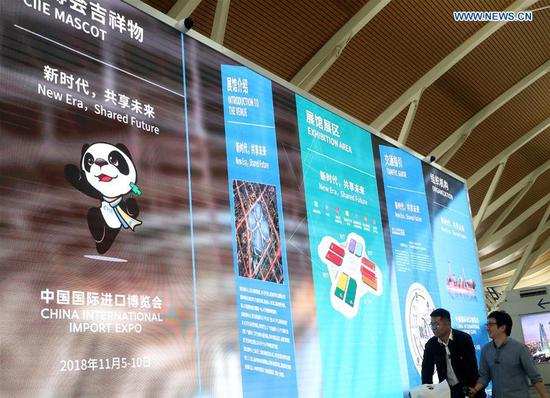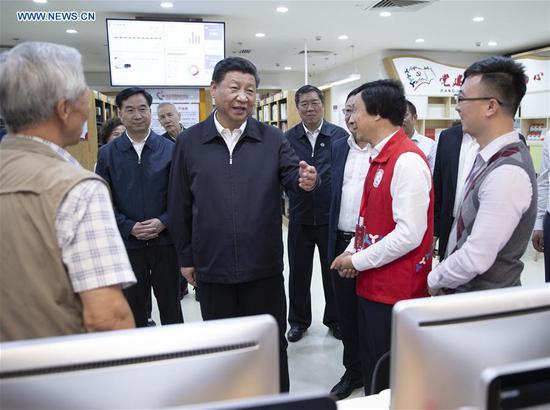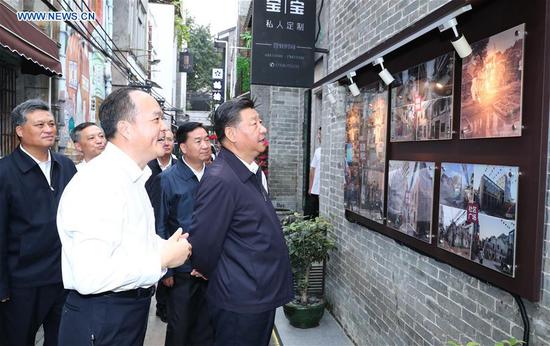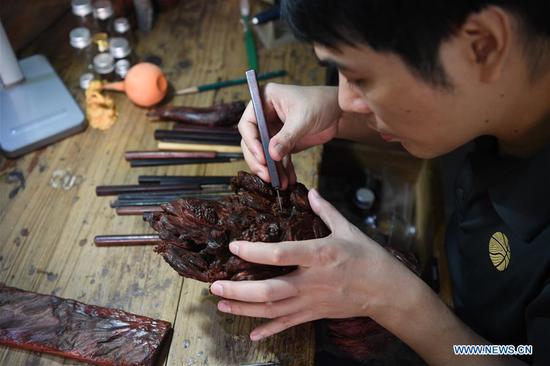During his meeting with visiting Japanese Prime Minister Shinzo Abe on Friday, President Xi Jinping said that China-Japan ties are back on track and gaining positive momentum. Three experts share their views on the prospects for relations with China Daily's Liu Jianna. Excerpts follow:
Bilateral relations enter new era
China and Japan have reached a consensus on the future development of bilateral relations and the need to deepen their cooperation. It is a new milestone in the two neighbors' often fraught relationship. It is anticipated that President Xi Jinping will make a reciprocal visit to Japan next year, which would further consolidate the rebound in the two countries' ties.
As expected talks on cooperation in third party markets under the framework of the Belt and Road Initiative yielded the most fruitful and desired results during Abe's visit, and 52 deals totaling more than $18 billion were signed. This has created more room for coordination and cooperation.
In a broader sense, the two leaders also discussed how to enhance cooperation in global governance, and safeguard and promote the multilateral trade system. This demonstration of a shared stance will certainly have a positive influence on the world economy amid the disturbing anti-globalization trend being championed by US President Donald Trump.
As both China and Japan have entered new stages in their economic development, they have strong practical needs to strengthen their economic ties to inject new momentum into economic development at home. In addition, the Trump administration's trade bullying practices, which have placed immense pressure upon the economies that benefit from free trade and investment, have also pushed the two countries closer.
That Japan plans to scrap official development assistance to China due to the latter's rise to be the second-largest economy marks the end of the era when China needed Japan's massive assistance to develop its economy. Nowadays it is imperative for China and Japan to expand investment and cooperation at a much higher level.
Jiang Ruiping, vice-president of China Foreign Affairs University
Expanded boundaries for cooperation
In the field of economic collaboration, China and Japan's pledge to expand cooperation in third party markets is quite significant. By cooperating in this way, the two countries will have a new way to strengthen ties. Besides, their currency swap agreement will help the two to better develop their economic and trade relations and withstand financial risks while setting an example for financial cooperation between major economies.
But aside from increasing economic cooperation between the two countries, Abe's visit has also helped enhance political mutual trust between China and Japan, which have been at odds in the past few years. That the two neighbors have made steady progress in thawing their ties not only conforms to their own interests by shelving their differences and seeking common ground, but also helps to stabilize the turbulent international situation.
Although the Trump administration's protectionist policies have helped to push China and Japan closer together, the development of the China-Japan relationship mainly depends on the two countries 'practical needs to expand their cooperation. That said, the signing of multilevel agreements including the currency swap agreement all help to confront the protectionism and unilateralism of the Trump administration.
Gao Hong, a research fellow at the Chinese Academy of Social Sciences
Caution needed for future developments
Abe's visit to China has cemented the two sides' economic cooperation. Yet it remains to be seen how domestic audience in Japan including the ruling Liberal Democratic Party view this visit and its effects, and how Abe and his administration treat China on multilateral occasions, including next year's G20 Summit, which is to be held in Osaka.
The fundamental contradictions between the two countries, which led to relations freezing in the first place, have not been resolved. Thus a cautiously optimistic attitude should be adopted.
In terms of Japan's plan to end its overseas development assistance to China, the truth is Japan has already abolished its yen loans to China, which accounted for more than 90 percent of Japan's assistance to China in 2008.
Thus the Japanese government's decision to scrap all its development should not come as a complete surprise.
Also it should be noted that both countries gained from the loans as Japan recovered the principal plus interest compared with the zero interest rates at home.
The author, Liu Jiangyong, is a professor at the Institute of International Relations, Tsinghua University.









